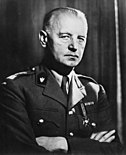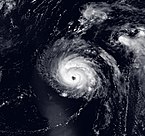Wikipedia:Main Page history/2022 September 30
From today's featured article

The First Battle of Newtonia was fought on September 30, 1862, near Newtonia, Missouri, during the American Civil War. Confederate colonel Douglas H. Cooper's soldiers clashed with Union brigadier general Frederick C. Salomon's column. Cooper's force consisted mostly of cavalry including a brigade of Native Americans. Union colonel Edward Lynde's force was driven out of Newtonia during the morning. Both sides brought up reinforcements, and seesaw fighting took place during the afternoon. Shortly before nightfall, the Confederates made an all-out attack, causing Salomon to withdraw. Union militia covered the retreat, although Confederate artillery fire turned it into a disorderly rout. Union casualties were approximately 245, against Confederate losses of 78. Union brigadier general James G. Blunt's whole division advanced towards Newtonia in early October, and Cooper abandoned Missouri. A portion of the battlefield was listed in 2004 as the First Battle of Newtonia Historic District. (Full article...)
Did you know ...
- ... that Jamie Proctor won Port Vale's Goal of the Season award after scoring a scissor-kick volley (pictured) against Sutton United?
- ... that the video for "7/11" by Beyoncé contains a cameo from her daughter Blue Ivy?
- ... that Elise Reiman, who taught children's classes at George Balanchine's School of American Ballet for four decades, was called "the bridge between generations"?
- ... that a Turkish Airlines aircraft that crashed in 1972 had been due to carry Turkish prime minister Nihat Erim later that day?
- ... that Hamim Tohari, the current spokesperson of the Indonesian Army, was once removed from his post after being caught using a phone during a meeting with the commander-in-chief?
- ... that TreasuryDirect, a website for purchasing US Treasury securities, originated in 1986 as a computerized service conducted over postal mail?
- ... that the manga series Reptilia was inspired in part by a story from Japanese folklore about a woman who is transformed into a snake, told to author Kazuo Umezu as a child?
- ... that Nancy Reagan jumped out of her bath when she heard that her husband had been elected President of the United States?
In the news
- Hurricane Ian makes landfall in Cuba and Florida, United States, resulting in at least 16 deaths and leaving millions without power.
- NASA's Double Asteroid Redirection Test spacecraft deliberately collides with the asteroid Dimorphos (pictured) in a demonstration of asteroid deflection.
- Kenyan Eliud Kipchoge sets a new world record at the Berlin Marathon.
- The centre-right coalition wins a majority of seats in the Italian general election.
- Hurricane Fiona results in at least 27 deaths across the Caribbean and Canada.
On this day
September 30: Orange Shirt Day in Canada
- 737 – Muslim conquest of Transoxiana: Türgesh tribesmen attacked and captured the exposed baggage train of the Umayyad army, sent ahead of the main force.
- 1551 – Sue Takafusa, a retainer of the Ōuchi clan in western Japan, led a coup against the daimyō Ōuchi Yoshitaka, leading to the latter's forced suicide.
- 1863 – Georges Bizet's opera Les pêcheurs de perles premiered at the Théâtre Lyrique in Paris.
- 1939 – Second World War: General Władysław Sikorski (pictured) became the first prime minister of the Polish government-in-exile.
- 1965 – Members of the 30 September Movement attempted a coup against the Indonesian government that was crushed by the military under Suharto, leading to a mass anti-communist purge with more than 500,000 people killed over the following months.
- Fan Yanguang (d. 940)
- Charles Villiers Stanford (b. 1852)
- Basia (b. 1954)
From today's featured list
The 1990 Atlantic hurricane season featured the most named storms of any hurricane season at the time. During the 1990 season, 14 tropical cyclones in the Atlantic Ocean became named storms. The season officially started on June 1, 1990, and ended on November 30. However, storm formation is possible at any time of the year, as was the case in this season, when Tropical Depression One formed on May 24; Hurricane Nana, the season's final storm, dissipated on October 21. The season produced 16 tropical depressions, of which 14 intensified into tropical storms, 8 became hurricanes, and 1 became a major hurricane. Although the season had the highest number of named storms at the time, it featured only two notable storms, primarily because many of the tropical cyclones remained either weak or at sea. The two most significant storms of the season, in terms of damage and loss of life, were Hurricane Diana and Tropical Storm Marco. The strongest tropical cyclone of the season was Hurricane Gustav (pictured). (Full list...)
Today's featured picture

|
|
Ignace-Gaston Pardies (1636–1673) was a French Catholic priest and scientist. His celestial atlas, entitled Globi coelestis in tabulas planas redacti descriptio, comprised six charts of the night sky and was first published in 1674. The atlas uses a gnomonic projection so that the plates make up a cube of the celestial sphere. The constellation figures are drawn from Uranometria, but were carefully reworked and adapted to a broader view of the sky. This is the sixth plate from a 1693 edition of Pardies's atlas, featuring constellations from the southern sky including Pavo, Indus and Apus. An index of constellations is provided in the left and right margins, in Latin and French, respectively. Map credit: Ignace-Gaston Pardies
Recently featured:
|
Other areas of Wikipedia
- Community portal – The central hub for editors, with resources, links, tasks, and announcements.
- Village pump – Forum for discussions about Wikipedia itself, including policies and technical issues.
- Site news – Sources of news about Wikipedia and the broader Wikimedia movement.
- Teahouse – Ask basic questions about using or editing Wikipedia.
- Help desk – Ask questions about using or editing Wikipedia.
- Reference desk – Ask research questions about encyclopedic topics.
- Content portals – A unique way to navigate the encyclopedia.
Wikipedia's sister projects
Wikipedia is written by volunteer editors and hosted by the Wikimedia Foundation, a non-profit organization that also hosts a range of other volunteer projects:
-
Commons
Free media repository -
MediaWiki
Wiki software development -
Meta-Wiki
Wikimedia project coordination -
Wikibooks
Free textbooks and manuals -
Wikidata
Free knowledge base -
Wikinews
Free-content news -
Wikiquote
Collection of quotations -
Wikisource
Free-content library -
Wikispecies
Directory of species -
Wikiversity
Free learning tools -
Wikivoyage
Free travel guide -
Wiktionary
Dictionary and thesaurus
Wikipedia languages
This Wikipedia is written in English. Many other Wikipedias are available; some of the largest are listed below.
-
1,000,000+ articles
-
250,000+ articles
-
50,000+ articles



